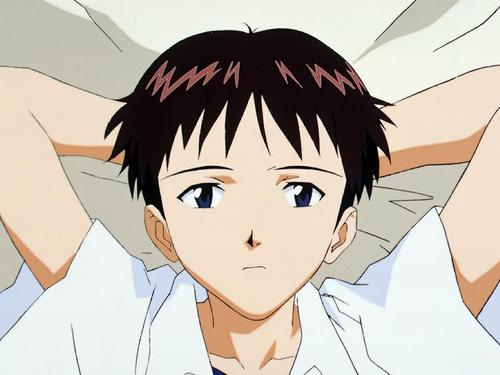It makes sense to make your hero a superior man, since that makes it easier to overcome all challenges, defeat the villain and his minions. So most stories feature heroes who are smarter, faster, stronger, more handsome/prettier, and harder to kill that the typical person in that world. Many heroes have superpowers, or magical powers, or powers endowed by an ancient religion, to help them accomplish their goals.
But my favorite stories feature the inferior hero. The hero who is actually inferior to the villains in almost every way, and may even be inferior to the typical person.
Gattaca is one of my favorite movies and features a hero is inferior to almost everyone else in his world because he was born naturally instead of artificially selected for superior genetic traits. His efforts to keep his job as an astronaut become heroic because of all the disadvantages he must overcome: bad eyesight, bad heart, less stamina, lower life expectancy, etc.
Bladerunner features a hero who is not inferior to the norm, but is certainly inferior to the androids he must hunt down and "retire". They are smarter than him, faster, stonger, and have better good looks than the hero. Also, there are four of them, so he is outnumbered.
Lord of the Rings features a hobbit as a hero, who is smaller than humans, clumsier than elves, and weaker than dwarves. Frodo is just an ordinary hobbit, with no combat skills. His only advantage is he's good at hiding.
When Frodo can no longer bear the ring, an even more inferior hobbit named Sam takes over and becomes the hero. Sam is even more inferior than Frodo because he is simple-minded and naive.
The classic story about the inferior hero is Rudy. The hero is small in stature, not very bright, has dyslexia, has no talent at football, but despite his inferiority he gets himself enrolled in Notre Dame, joins the Notre Dame football team, and gets to play football in a real game.
What the inferior hero has is "pluck", defined as "Resourceful courage and daring in the face of difficulties; spirit."
"Pluck" is what helps the inferior hero overcome all his disadvantages and win the day anyway. We admire the inferior hero more because he had to put in more effort to get the same result. His victory is our victory, because we've all been in situations where we felt we were out of our league.
An inferior hero does not need to save the world to get our admiration. He is a hero if he can accomplish things that are merely extraordinary.
But my favorite stories feature the inferior hero. The hero who is actually inferior to the villains in almost every way, and may even be inferior to the typical person.
Gattaca is one of my favorite movies and features a hero is inferior to almost everyone else in his world because he was born naturally instead of artificially selected for superior genetic traits. His efforts to keep his job as an astronaut become heroic because of all the disadvantages he must overcome: bad eyesight, bad heart, less stamina, lower life expectancy, etc.
Bladerunner features a hero who is not inferior to the norm, but is certainly inferior to the androids he must hunt down and "retire". They are smarter than him, faster, stonger, and have better good looks than the hero. Also, there are four of them, so he is outnumbered.
Lord of the Rings features a hobbit as a hero, who is smaller than humans, clumsier than elves, and weaker than dwarves. Frodo is just an ordinary hobbit, with no combat skills. His only advantage is he's good at hiding.
When Frodo can no longer bear the ring, an even more inferior hobbit named Sam takes over and becomes the hero. Sam is even more inferior than Frodo because he is simple-minded and naive.
The classic story about the inferior hero is Rudy. The hero is small in stature, not very bright, has dyslexia, has no talent at football, but despite his inferiority he gets himself enrolled in Notre Dame, joins the Notre Dame football team, and gets to play football in a real game.
What the inferior hero has is "pluck", defined as "Resourceful courage and daring in the face of difficulties; spirit."
"Pluck" is what helps the inferior hero overcome all his disadvantages and win the day anyway. We admire the inferior hero more because he had to put in more effort to get the same result. His victory is our victory, because we've all been in situations where we felt we were out of our league.
An inferior hero does not need to save the world to get our admiration. He is a hero if he can accomplish things that are merely extraordinary.



